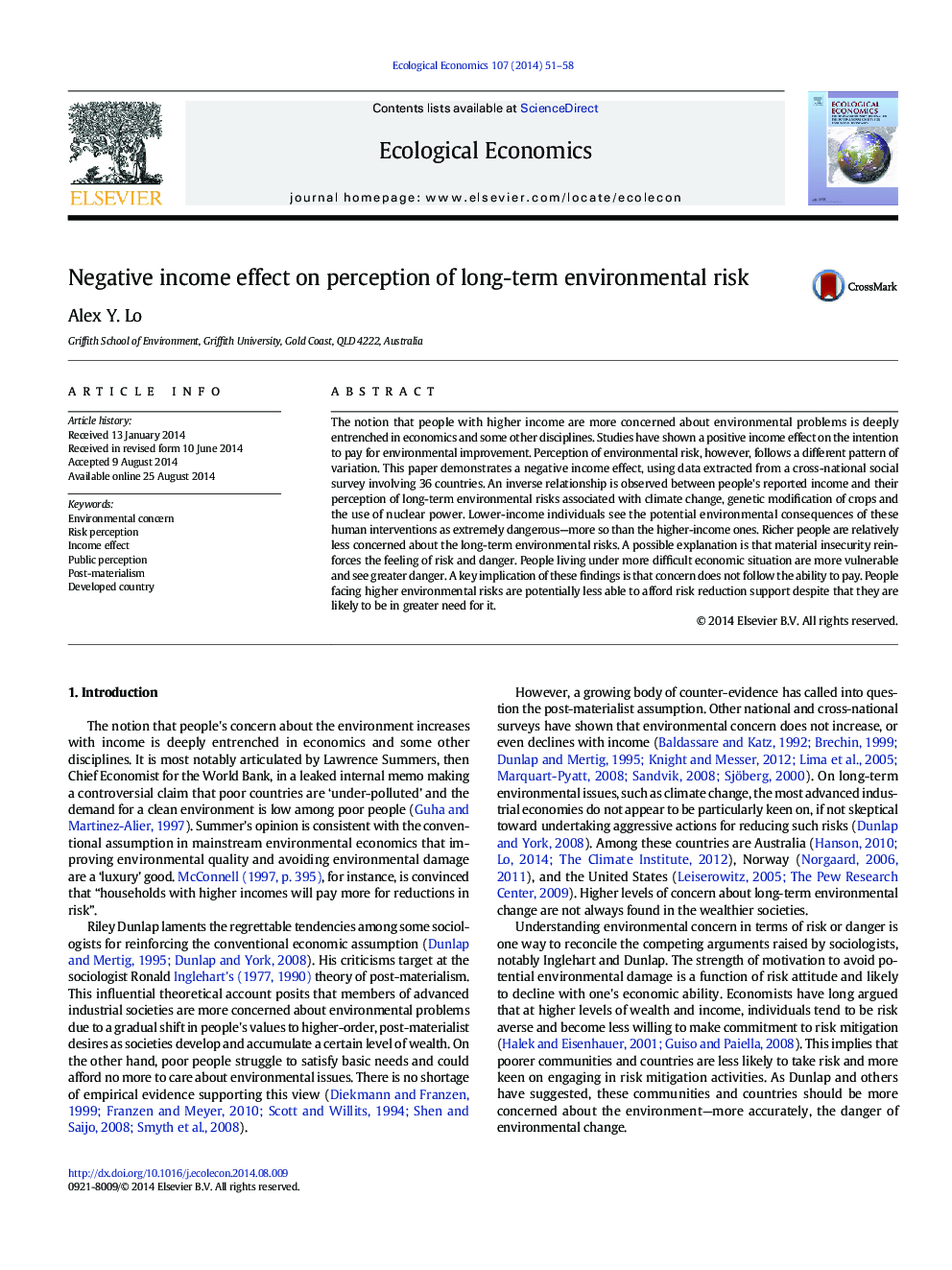| کد مقاله | کد نشریه | سال انتشار | مقاله انگلیسی | نسخه تمام متن |
|---|---|---|---|---|
| 5049504 | 1476372 | 2014 | 8 صفحه PDF | دانلود رایگان |
- This research is based on a cross-national social survey involving 36 countries.
- Results show that environmental concern does not increase with income.
- People's perception of environmental risks is negatively related to their income level.
- Higher-income individuals rate environmental problems as relatively less dangerous.
- People facing higher risks are potentially less able to afford risk reduction support.
The notion that people with higher income are more concerned about environmental problems is deeply entrenched in economics and some other disciplines. Studies have shown a positive income effect on the intention to pay for environmental improvement. Perception of environmental risk, however, follows a different pattern of variation. This paper demonstrates a negative income effect, using data extracted from a cross-national social survey involving 36 countries. An inverse relationship is observed between people's reported income and their perception of long-term environmental risks associated with climate change, genetic modification of crops and the use of nuclear power. Lower-income individuals see the potential environmental consequences of these human interventions as extremely dangerous-more so than the higher-income ones. Richer people are relatively less concerned about the long-term environmental risks. A possible explanation is that material insecurity reinforces the feeling of risk and danger. People living under more difficult economic situation are more vulnerable and see greater danger. A key implication of these findings is that concern does not follow the ability to pay. People facing higher environmental risks are potentially less able to afford risk reduction support despite that they are likely to be in greater need for it.
Journal: Ecological Economics - Volume 107, November 2014, Pages 51-58
